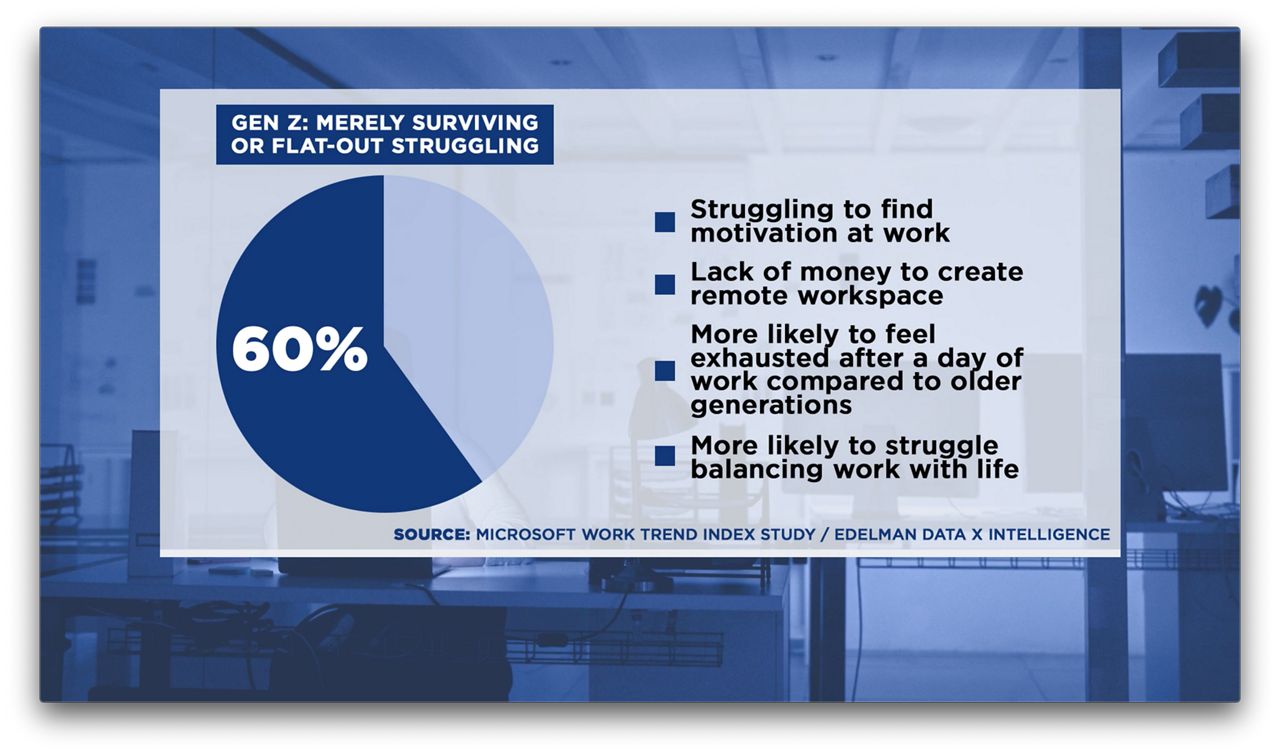GREENSBORO, N.C. — Workers across the globe transitioned from working in the office to working from home during the course of the pandemic. According to Microsoft’s Work Trend Index study, younger generations are facing more challenges in remote work compared to older generations.
According to the study, 60% of Generation Z, 18 to 25-year-olds, surveyed said they were struggling or merely surviving with remote work. Generation Z is also the newest and youngest age group to join the work force. Many cited not having the financial means to create a proper workspace at home, feeling isolated or struggling to find motivation compared to older generations.

The study found the Generation Z also struggles with finding a work-life balance and reports being exhausted at the end of an average work day.
Porshe Chiles is not a Gen Z’er but a Millennial. She’s been working from home for more than a year since starting a new position with the global research department of Wake Forest University. Chiles knows the importance of mental health, and work-life balance, and is active in groups outside of work to maintain.
“It’s so important for me to find outside things to do, which is why I try to get outside, I try to go for walks, I build things, grow things, support other people in their building and growing of things,” said Chiles.
Aside from her full-time remote job, Chiles launched her own company, Endurance Consulting, and she is the current president of the Greensboro Jaycees. Chiles is also completing her second masters degree at Wake Forest University. She easily spends between 75 to 80 hours a week at her computer but she is intentional about taking time to do things outside of work.
Chiles volunteers on the weekends at a community garden and she also tends to her own backyard garden. Chiles has a list of DIY projects she’s working on, as well as creating and consuming on the social media platform TikTok. Whether it’s taking a quick stroll or building a raised bed for her garden, Chiles makes time to take a break.
“Oddly enough, because I found ways to be engaged outside of work, it’s made it easier to bear,” she said.
Working remotely doesn’t look like it’s going away anytime soon. In fact, a hybrid approach might become the norm. According to Microsoft’s study, 70% of workers are in favor of remote work but 65% of workers want more in-person time with their teams.
To read the full report, click here.





